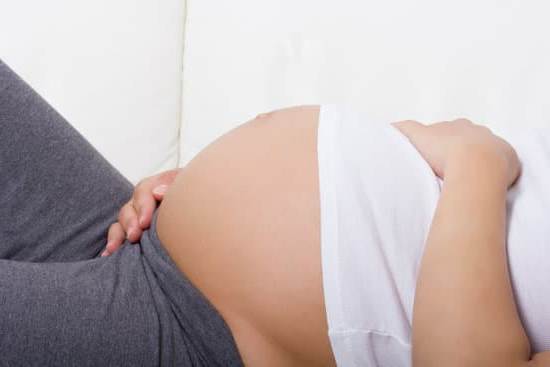Pregnancy is a beautiful and transformative experience for many women, but it can also come with its fair share of discomforts. One common symptom that expecting mothers may face is itching. As expectant mothers navigate the various changes in their bodies, they may wonder, “When should I be worried about itching during pregnancy?”.
Itching during pregnancy can be a result of various factors, such as hormonal changes, stretching skin, or increased blood flow. While mild itching is usually considered normal and a common part of pregnancy, it is essential to differentiate between normal discomforts and when itching may signal a more concerning issue that requires medical attention.
Understanding the causes of itching during pregnancy is crucial for expectant mothers. From skin conditions like PUPPP (pruritic urticarial papules and plaques of pregnancy) to more serious conditions like intrahepatic cholestasis of pregnancy, knowing the underlying reasons behind itching can help determine when further evaluation by a healthcare provider may be necessary.
Causes of Itching During Pregnancy
Itching during pregnancy is a common discomfort experienced by many expectant mothers. The causes of itching during this time can vary, ranging from mild and benign reasons to more serious underlying conditions. One of the main reasons for itching during pregnancy is the stretching of the skin as the belly grows.
This stretching can lead to dryness and itchiness, especially in areas where the skin is expanding rapidly. Hormonal changes can also play a role in causing itchiness, as these changes can affect the skin’s elasticity and moisture levels.
Another common cause of itching during pregnancy is an increase in blood supply to the skin, which can make pregnant women more sensitive to various irritants. Additionally, conditions such as eczema or allergies that may have been present before pregnancy can be exacerbated during this time. In some cases, medical conditions like cholestasis of pregnancy or PUPPP (pruritic urticarial papules and plaques of pregnancy) can also lead to severe itching and require medical attention.
It is essential for pregnant women to differentiate between normal itching and when it may be a cause for concern. Mild itching that comes and goes is usually not a cause for worry, but persistent or severe itching should prompt further evaluation by a healthcare provider. Knowing when to seek medical advice is crucial in ensuring the well-being of both the mother and the baby.
If you find yourself asking, “When should I be worried about itching during pregnancy?” it is always best to err on the side of caution and consult with your doctor if you have any concerns about your symptoms.
| Common Causes of Itching During Pregnancy | Examples |
|---|---|
| Skin stretching due to rapid growth | Abdomen, breasts |
| Hormonal changes affecting skin | Decreased elasticity |
| Increased blood supply to skin | Sensitivity to irritants |
Normal vs Concerning Itching
It is common for women to experience itching during pregnancy, which can often be attributed to hormonal changes, stretching skin, or mild skin irritations. However, it is essential to understand the difference between normal itching and when it may indicate a more serious underlying issue. Normal itching during pregnancy is typically mild, intermittent, and localized.
It may occur on the abdomen, breasts, thighs, and other areas affected by stretching skin. This type of itching is usually temporary and does not cause significant discomfort.
On the other hand, when should I be worried about itching during pregnancy? If the itching becomes severe, persistent, or widespread, it may be a cause for concern.
Itching that is accompanied by other symptoms such as dark urine, pale stools, jaundice (yellowing of the skin and eyes), nausea or vomiting, and abdominal pain could indicate a more serious condition that requires medical attention. In some cases, severe itching during pregnancy may be a sign of conditions like intrahepatic cholestasis of pregnancy (ICP) or other liver disorders.
If you are unsure whether your itching during pregnancy is normal or concerning, it is always best to consult with your healthcare provider. They can evaluate your symptoms, perform any necessary tests or screenings, and provide guidance on the appropriate course of action. It is important not to ignore persistent or severe itching during pregnancy as it could potentially lead to complications for both you and your baby if left untreated.
| Signs of Severe Itching in Pregnancy | Potential Causes |
|---|---|
| Severe and persistent itching | Intrahepatic cholestasis of pregnancy (ICP) |
| Yellowing of the skin and eyes | Liver disorders |
Skin Conditions During Pregnancy That May Cause Itching
During pregnancy, changes in hormone levels can sometimes lead to various skin conditions that cause itching. Two common skin conditions that may cause itching during pregnancy are Pruritic Urticarial Papules and Plaques of Pregnancy (PUPPP) and Intrahepatic Cholestasis of Pregnancy (ICP).
Pruritic Urticarial Papules and Plaques of Pregnancy (PUPPP)
PUPPP is a common skin condition that typically occurs during the third trimester of pregnancy. It is characterized by red, itchy bumps or hives that usually start on the abdomen and spread to other parts of the body, such as the thighs, buttocks, and arms. The exact cause of PUPPP is unknown, but it is believed to be related to stretching of the skin and hormonal changes during pregnancy.
Intrahepatic Cholestasis of Pregnancy (ICP)
Intrahepatic Cholestasis of Pregnancy (ICP) is a liver disorder that occurs during pregnancy and can cause severe itching. It is more common in the second and third trimesters and is characterized by intense itching, usually on the palms of the hands and soles of the feet.
ICP occurs when bile flow from the liver is affected, leading to a buildup of bile acids in the blood. This condition can increase the risk of complications for both the mother and baby if not properly managed.
It is important to note that both PUPPP and ICP can cause significant discomfort due to itching. If you experience persistent or severe itching during pregnancy, especially in these specific patterns described for PUPPP or ICP, it is crucial to consult with your healthcare provider for proper diagnosis and management. Early detection and treatment can help alleviate symptoms and prevent potential complications for both you and your baby.
Non-Serious Remedies for Itching During Pregnancy
During pregnancy, many women experience a range of discomforts, one of which is itching. This common symptom can be caused by various factors, including hormonal changes, stretching of the skin, and increased blood supply to the skin. While mild itching is typically considered normal during pregnancy, it is essential to know when it may indicate a more serious issue that requires medical attention.
Causes of Itching During Pregnancy
Itching during pregnancy can be attributed to a variety of factors. Hormonal fluctuations can lead to dry skin, which in turn causes itching. The stretching of the skin as the belly expands can also contribute to itchiness. Additionally, conditions such as eczema or allergic reactions may worsen during pregnancy and result in increased itching. Understanding the underlying cause of itching is crucial in determining the appropriate treatment and knowing when to seek medical advice.
Normal vs. Concerning Itching
It is important for expectant mothers to distinguish between normal itching and when it may be a cause for concern. Mild itching that occurs occasionally and does not disrupt daily activities is generally considered normal during pregnancy. However, if the itching is severe, persistent, accompanied by other symptoms such as rash or jaundice, or affects multiple areas of the body, it may indicate a more serious condition that requires evaluation by a healthcare provider.
Finding relief from itching during pregnancy can often be achieved through non-serious remedies such as applying moisturizers regularly, avoiding hot showers or baths, wearing loose-fitting clothing made from breathable fabrics like cotton, and using mild soaps without harsh chemicals. Over-the-counter anti-itch creams containing ingredients like oatmeal or calamine can also help alleviate mild itching.
However, when should I be worried about itching during pregnancy? It’s essential to monitor symptoms closely and consult with a healthcare provider if the itching becomes severe or persistent.
When Should I Be Worried About Itching During Pregnancy
It is common for women to experience itching during pregnancy, due to hormonal changes and stretching of the skin. However, there are instances when itching can signal a more serious underlying issue that requires medical attention. So, when should you be worried about itching during pregnancy? Here are some signs that indicate a need for immediate medical evaluation:
- Intense itchiness all over the body: If you are experiencing intense and persistent itching that affects your entire body, especially on the palms of your hands or soles of your feet, it could be a sign of a liver condition called intrahepatic cholestasis of pregnancy (ICP).
- Yellowing of the skin or eyes: When accompanied by itching, yellowing of the skin or eyes (jaundice) can be a symptom of cholestasis or other liver disorders. This requires immediate medical attention to prevent complications for both you and your baby.
- Dark urine or pale stools: Changes in urine color or stool consistency along with itching can be indicative of liver issues. It is essential to consult your healthcare provider if you notice these changes.
If you experience any of these symptoms associated with itching during pregnancy, it is crucial to seek prompt medical advice. Your healthcare provider will be able to conduct tests and examinations to determine the underlying cause of the itching and recommend appropriate treatment. Remember, it is always better to err on the side of caution and address any concerns promptly to ensure the well-being of both you and your baby.
Remember that while mild itching is common during pregnancy due to normal physiological changes, severe or persistent itching should not be ignored. Listening to your body and being aware of any unusual symptoms can help in identifying potential issues early on. Don’t hesitate to reach out to your healthcare provider if you have any doubts or concerns about the itching you are experiencing during pregnancy.
Complications Associated With Severe Itching During Pregnancy
Severe itching during pregnancy, if left untreated, can lead to potential complications that may affect both the mother and the developing baby. It is crucial for pregnant individuals to be aware of the risks associated with persistent and severe itching, and to seek medical attention when necessary. Here are some of the complications that can arise from untreated itching during pregnancy:
- Preterm Labor: Severe itching, especially when accompanied by other symptoms such as abdominal pain or contractions, can be a sign of preterm labor. Itching caused by conditions like intrahepatic cholestasis of pregnancy (ICP) has been linked to an increased risk of preterm birth.
- Fetal Distress: Intrahepatic cholestasis of pregnancy, a liver condition that causes intense itching, can also lead to complications for the baby. This condition has been associated with an increased risk of fetal distress, meconium staining (the presence of fetal stool in the amniotic fluid), and stillbirth.
- Maternal Complications: Severe itching during pregnancy may also indicate underlying medical conditions that could pose risks to the mother’s health. For instance, intrahepatic cholestasis of pregnancy is linked to an increased likelihood of gallstones and vitamin K deficiency in expectant mothers.
It is important for pregnant individuals experiencing severe and persistent itching to consult their healthcare providers promptly. While mild itching may often be alleviated with non-serious remedies or lifestyle changes, severe itching could signal a more serious issue that requires medical intervention. By seeking timely care and monitoring any concerning symptoms closely, potential complications associated with severe itching during pregnancy can be addressed and managed effectively.
- Regular prenatal check-ups are essential for monitoring both maternal and fetal well-being throughout pregnancy.
- If you notice any unusual or persistent symptoms accompanying your itching, such as jaundice (yellowing of the skin), dark urine, or upper abdominal pain, seek immediate medical attention.
- Remember that your healthcare provider is there to support you during this crucial stage in your life, so don’t hesitate to reach out if you have any concerns about itching or any other aspect of your pregnancy journey.
Consulting a Healthcare Provider
It is crucial for expectant mothers to understand that while itching during pregnancy is a common discomfort, there are instances when it may signal a more serious underlying issue that requires medical attention. Knowing when to be concerned about itching during pregnancy can help safeguard both the mother’s health and the well-being of the baby. Consulting a healthcare provider is essential if experiencing severe or persistent itching that does not respond to non-serious remedies.
When should you be worried about itching during pregnancy? If the itching becomes intense, particularly on the palms of the hands or soles of the feet, it could be a sign of a condition called intrahepatic cholestasis of pregnancy (ICP), which may pose risks to the baby if left untreated.
Additionally, if the itching is accompanied by other symptoms such as dark urine, light-colored stools, or jaundice, seeking medical advice promptly is imperative. These signs may indicate a more serious liver-related issue that requires immediate attention.
In cases where over-the-counter remedies and natural solutions have proven ineffective in relieving itching during pregnancy, it is important not to delay in consulting a healthcare provider. Remember that your health and the health of your baby are top priorities, and thorough assessment by a medical professional can help determine the underlying cause of the itchiness and provide appropriate treatment. Be proactive in seeking medical advice when necessary to ensure a safe and healthy pregnancy journey.
Frequently Asked Questions
What Is Considered Severe Itching During Pregnancy?
Severe itching during pregnancy is typically characterized by intense and persistent itching on the palms of hands and soles of feet. This itching may also occur all over the body, causing discomfort and disruption to daily activities.
When Should I Go to the ER for Itching During Pregnancy?
If you are experiencing severe itching during pregnancy, especially on your palms and soles, it is important to seek medical attention if it is accompanied by other symptoms such as dark urine, light-colored stools, yellowing of the skin or eyes, nausea, vomiting, or abdominal pain.
These could be signs of a more serious condition like cholestasis that requires immediate medical intervention.
What Does Cholestasis Itching Feel Like?
Cholestasis itching can feel like a deep itch below the surface of the skin that does not go away with scratching. It often worsens at night and can be extremely uncomfortable, affecting sleep quality and overall well-being. This type of itching is usually not relieved with topical creams or moisturizers.

Welcome to my fertility blog. This is a space where I will be sharing my experiences as I navigate through the world of fertility treatments, as well as provide information and resources about fertility and pregnancy.





